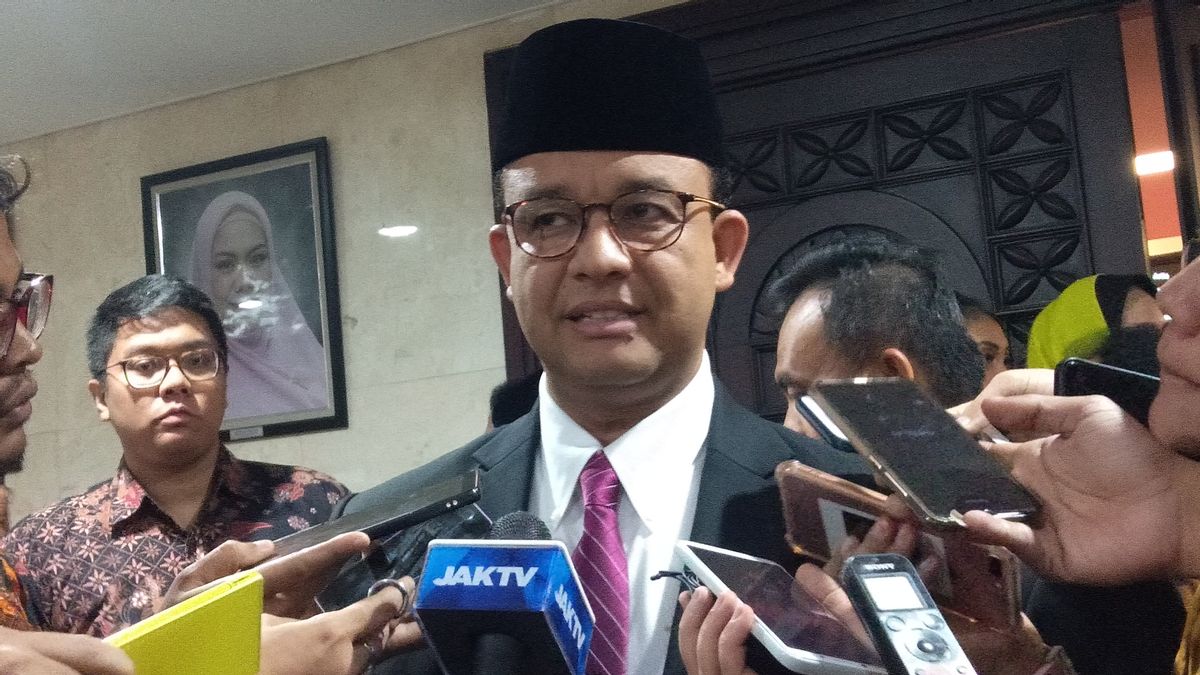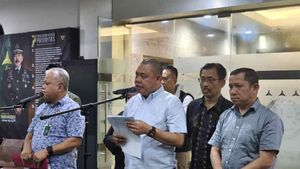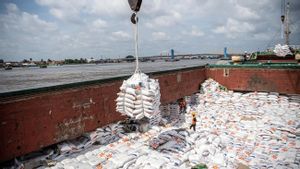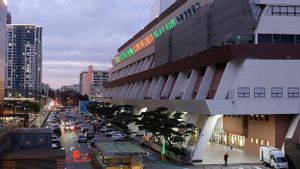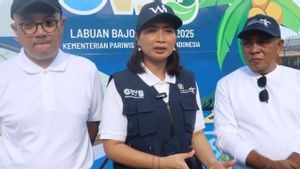JAKARTA - DKI Jakarta Governor Anies Baswedan conducted a groundbreaking for the construction of an urban-scale domestic Wastewater Treatment Installation (IPAL) facility in Krukut, Karet Setiabudi, South Jakarta, yesterday, Sunday, December 7.
Not just any waste water treatment. Anies claims that the Krukut IPAL will be a learning tool. By determining the location around the center of Jakarta, Anies wants the people and students of DKI to easily learn waste water management.
"Later there will be a path and a place that will be opened to the public, so that they can watch the process (wastewater treatment). Not only the process in the installation, the facilities are prepared to process it back into nature, which can later be used to flush and flush the toilet," said Anies .
According to him, many people do not make waste a business that must be done properly. Many people miss the pros and cons of wastewater treatment. In fact, there will be impacts on the environment if the waste water becomes more polluted.
It will be a problem that is not simple if the waste water is polluted in urban areas. Therefore, there needs to be a separate treatment to manage wastewater into clean water again.
"So, of course (wastewater treatment) in Jakarta is very important because land availability is very limited. By introducing this new technology, hopefully it can be used as an example for other cities in Indonesia," he said.

It is normal for Anies to be confident in calling this new IPAL a reference for waste treatment in other cities. This treatment system uses the Moving Bed Biofilm Reactor (MBBR) technology, which is the reactor that forms the cleaning filter layer for wastewater. MBBR technology with a capacity of 250 liters per second.
This facility is a continuation of the operation of modern WWTP which has been started since January 2019. Previously, the DKI Provincial Government used conventional techniques and joined forces with flood controllers.
However, there are drawbacks to conventional techniques. Technique. This requires a large area, so it is less efficient to move it in a dense city like Jakarta.
If using land with the same capacity as conventional technology, this MBBR technology only requires 2000 square meters of 4 hectares of land in conventional techniques.
The construction of the Krukut IPAL facility will last for 18 months and will be completed in 2021. However, it will not be finished there. Anies said that wastewater treatment in the Capital City could not be completed for a few years even though new technology was used.
"We will start from and until 2030 it has only been 84 percent completed, if we want it to be 100 percent it will only be completed in 2033 to illustrate that this is indeed a long-term activity," said the former Minister of Education and Culture.
In addition, the President Director of PD PAL Jaya Subekti said that this IPAL facility can realize the National Strategic Project, conserve the environment, improve public health, as a means of education and entertainment on wastewater treatment in Jakarta.
In accordance with the master plan, there are five zones whose construction will begin next year. Among others, the zones from Menteng to Pluit, Slipi to Duri Kosambi, Muara Angke, Sunter, and Marunda.
"These five zones are a new history for Jakarta because construction takes a long time, at least five years, so starting next year will be completed in the next five years," said Subekti.
The English, Chinese, Japanese, Arabic, and French versions are automatically generated by the AI. So there may still be inaccuracies in translating, please always see Indonesian as our main language. (system supported by DigitalSiber.id)
